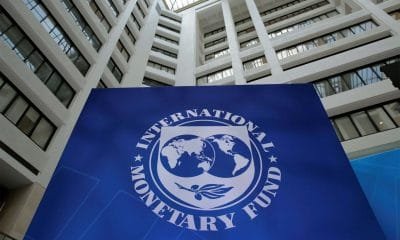IMF and DR Congo Successfully Conclude Final Review of Loan Agreement
On Wednesday, the International Monetary Fund (IMF) announced a significant step forward in its financial partnership with the Democratic Republic of Congo (DRC), revealing a staff-level agreement regarding the final review of a $1.5 billion loan program. This development marks a crucial stride for Congo, potentially culminating in completing an IMF program for the first time. This achievement had eluded them due to challenges such as opacity in the extensive mining sector.
The IMF commended Congo’s performance under the three-year program, noting the overall positive trajectory with most quantitative objectives met and key reforms initiated, albeit gradually. Upon approval by the IMF board, this agreement will pave the way for the disbursement of the final tranche, estimated at approximately $200 million.
However, the IMF emphasized the imperative for Congo, a significant global cobalt and copper supplier, to manage the funds stemming from a revised mining deal judiciously. The recent amendment to the Sicomines joint venture with Chinese entities mainly necessitates careful consideration in Congo’s revised budget law for 2024. The IMF stressed the importance of implementing robust mechanisms to ensure transparent governance and effective utilization of these funds.
President Felix Tshisekedi’s advocacy for revising the 2008 minerals infrastructure agreement with Sinohydro Corp and China Railway Group, aimed at securing greater benefits for Congo, culminated in an agreement in March. Nonetheless, concerns linger regarding the management of the allocated funds, with the IMF urging their integration into public treasury accounts to enhance accountability.
Another key condition of the IMF program entails the disclosure of mining contracts, a step Congo recently undertook by unveiling details of the revised Sicomines terms. These terms entail significant infrastructure investments amounting to around $7 billion from the Chinese side, contingent upon favorable copper prices. However, it’s worth noting that under the previous agreement, only a fraction of the promised infrastructure investments materialized, as highlighted in a 2023 report by Congo’s state auditor.
Despite revisions, the updated deal continues to draw criticism from both Congolese and international civil society organizations, particularly concerning Sicomines’s tax exemption until 2040, which is perceived as disadvantageous to Congo’s interests. This underscores the complex dynamics involved in balancing economic development with equitable resource management and governance in resource-rich nations like Congo.


















